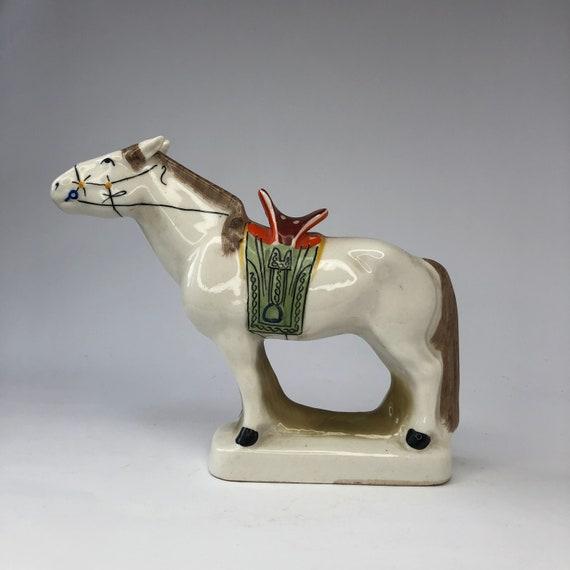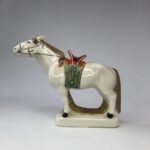Reviving a Classic: The Charm of Vintage Mud Flaps
In a world that often celebrates the new and the sleek, there exists a quaint realm of nostalgia that beckons automotive enthusiasts and collectors alike. Vintage mud flaps are more than just utilitarian accessories; they are a connection to a bygone era of design and craftsmanship. Each flap tells a story of road trips taken, landscapes traversed, and the rugged spirit of vehicles that once roamed the streets with pride. With vibrant graphics and unique materials, these artifacts not only serve to protect against the elements but also add a touch of personality to any ride. Join us as we explore the rich history, the enduring appeal, and the modern resurgence of vintage mud flaps—an emblem of style and function that continues to capture the imagination of many. Whether you’re a seasoned collector or a curious newcomer, there’s much to discover in this charming corner of automotive heritage.
Exploring the Allure of Vintage Mud Flaps in Automotive Culture
The charm of vintage mud flaps is undeniable, transforming everyday vehicles into expressions of personality and nostalgia. These accessories were once vital components of automotive engineering, serving a practical purpose by protecting vehicles from road debris and dirt. However, their aesthetic appeal has since captured the hearts of car enthusiasts and collectors alike. Many vintage mud flaps feature intricate designs, bold graphics, and characterful logos that harken back to an era when attention to detail mattered. As a result, they evoke a sense of belonging to a community that appreciates authenticity and the stories behind each design.
In automotive culture, the revival of vintage mud flaps is often linked to a broader appreciation for retro styles and classic cars. Collectors often seek out distinctive pieces to enhance their vehicles’ overall look, while showcasing their individuality. Embracing this trend means celebrating the unique craftsmanship of yesteryears. Key elements that contribute to the allure of these mud flaps include:Vintage Camera LensesVintage Peridot RingsFitting Vintage
- Artistic flair: Many mud flaps are adorned with graphics that reflect the zeitgeist of their time.
- Durability: Vintage materials often outlast contemporary counterparts, offering longevity and resilience.
- Community bonding: Joining vintage car shows and gatherings fosters connections with fellow enthusiasts.
| Feature | Benefit |
|---|---|
| Design Variety | Unique aesthetics for personal expression |
| Historical Value | Tells a story from a bygone era |
| Community Engagement | Connects with like-minded individuals |
Materials and Craftsmanship: What Makes Vintage Mud Flaps Stand Out
Vintage mud flaps are a testament to an era where craftsmanship was celebrated over mass production. Often made from high-quality rubber or durable canvas, these flaps not only served a practical purpose but also showcased the artistry of their makers. The materials used in the construction of these vintage accessories provided a unique aesthetic, complete with intricate designs that often included vibrant colors and nostalgic motifs. Unlike many modern counterparts, vintage mud flaps often exhibited a certain level of handcrafted imperfection, making each piece a unique representation of the artisan’s skill and vision.
What truly sets vintage mud flaps apart is the method of construction that was once prevalent. The use of metal eyelets for affixing to vehicles, hand-stitched seams, and embossed logos from local manufacturers are just a few elements that highlight their craftsmanship. Additionally, the popularity of certain styles during specific decades can turn these items into collectible treasures. Here are a few elements that further elevate the vintage allure:
| Element | Description |
| Material Quality | Thicker rubber for durability and longevity |
| Design Detail | Unique patterns often reflecting popular culture |
| Crafting Techniques | Hand-stitched, ensuring every piece is distinct |
| Brand Legacy | Crafted by manufacturers known for quality |
Reviving Nostalgia: How to Source Authentic Vintage Mud Flaps
To embark on your quest for authentic vintage mud flaps, the right sourcing strategy is vital. Start by exploring online marketplaces like eBay and Etsy, where collectors and sellers often list unique finds. Make sure to check vintage car restoration forums and Facebook groups, as enthusiasts frequently share tips and sell excess parts that may include sought-after mud flaps. Don’t overlook local swap meets, car shows, and flea markets, as these venues can be treasure troves teeming with hidden gems from decades past.
When examining potential purchases, look for key indicators of authenticity that can help ensure the quality and originality of the mud flaps. Consider the following checklist:
- Brand Logos: Check for familiar brands like
Eagle,Goodyear, orDodgethat signal credibility. - Material: Vintage mud flaps are often made of rubber, so ensure they don’t have modern plastic replacements.
- Condition: Assess for wear, fading, or cracks, as these elements add to their story and value.
To help you identify the right styles, here’s a simple table outlining popular types of vintage mud flaps:
| Type | Era | Common Uses |
|---|---|---|
| Classic Logo | 1960s-1970s | Passenger Vehicles |
| Custom Artsy | 1980s | Hot Rods & Custom Builds |
| Commercial | 1950s | Trucks & Vans |
Installation Tips for Optimal Display and Functionality
To ensure your vintage mud flaps look stunning and function effectively, proper installation is essential. Start by selecting the right location on your vehicle. A clean, dry surface will help the adhesive bond better and maintain the aesthetic quality of the mud flaps. Before you begin, gather the necessary tools: a cleaning cloth, a mild detergent, a measuring tape, and a level. You may want to lay out the mud flaps in place without attachment to visualize their position and make adjustments prior to the final fix.
During the installation process, it’s important to adhere to these key guidelines for a flawless setup:
- Ensure the flaps are evenly spaced and aligned with your vehicle’s wheel wells.
- Utilize the level to check that the flaps hang straight.
- Start by securing the top edge, then work your way down to the bottom.
- Give ample time for the adhesive or screws to set before taking your vehicle on the road.
If you’re using screws, consider this simple table to determine the appropriate sizes:
| Flap Material | Recommended Screw Size |
|---|---|
| Rubber | 1/2 inch |
| Plastic | 3/4 inch |
| Metal | 1 inch |
Preservation Techniques to Maintain Your Vintage Mud Flaps
To ensure your vintage mud flaps retain their aesthetic and structural integrity, a few preservation techniques are essential. Start by regularly cleaning them with a gentle soap solution to eliminate dirt and grime, which can cause material degradation over time. Avoid harsh chemicals that may strip away protective coatings. Additionally, consider applying a thin layer of silicone spray or conditioner made specifically for rubber and vinyl, helping to keep the material supple and resistant to cracking. Regular inspections will also aid in detecting any wear or damage early, allowing for timely repairs and maintenance.
The storage environment plays a crucial role in the longevity of your vintage mud flaps. When not in use, they should be housed in a cool, dry place, away from direct sunlight, which can fade colors and weaken the material. Consider using a protective cover or bag to shield them from dust and environmental factors. Here are some tips to enhance their preservation:
- Keep them away from extreme temperatures - Avoid placing mud flaps near heating vents or unprotected outdoor areas.
- Use soft fabric for storage – Avoid rough surfaces that may scratch the flaps during storage.
- Maintain humidity levels - A stable humidity level can prevent mold and mildew buildup.
Trends and Customization: Modern Takes on Classic Designs
As nostalgia sweeps through modern design, vintage mud flaps have emerged as a stylish accessory that not only adds flair to vehicles but also harks back to an era of bold aesthetics. Customization is key in this trend; enthusiasts are seeking unique designs that reflect personal tastes while celebrating the charm of yesteryear. Today’s offerings go beyond traditional materials and patterns, infusing elements such as vibrant graphics, eco-friendly materials, and innovative textures. This blend of classic artistry and modern sustainability creates a compelling narrative for both the owner and onlookers alike.
Custom mud flaps can be seen in a variety of settings, from classic cars to off-road vehicles, each telling a story through design. The following attributes are often considered in modern takes on vintage mud flaps:
- Artistic Graphics: Bold illustrations that resonate with retro themes.
- Material Innovation: Use of recycled materials to modernize traditional designs.
- Personalization: Options for owners to add names or favorite motifs.
- Functional Style: Designs that provide both aesthetics and utility.
Popular Vintage Mud Flap Styles
| Style | Description | Popular Use |
|---|---|---|
| Pin-Up Art | Classic 1950s-themed graphics featuring iconic figures. | Hot Rods and Muscle Cars |
| Retro Logos | Brand logos from vintage companies for a nostalgic touch. | Restored Classic Vehicles |
| Wild West Themes | Artwork inspired by cowboy culture, featuring desert landscapes. | Off-Road Vehicles |
Q&A
Q&A: Exploring the Charm of Vintage Mud Flaps
Q1: What are vintage mud flaps, and why are they considered collectible?
A1: Vintage mud flaps are decorative elements typically made from rubber or vinyl that were used on vehicles to protect against mud, water, and debris. What makes them collectible is their unique designs and nostalgic appeal, often featuring logos from classic brands, playful graphics, and even retro art styles. Car enthusiasts and collectors value these items not only for their practical function but also for the historical significance and artistic expression they represent.
Q2: How did mud flaps evolve over the years?
A2: Mud flaps have undergone significant changes since their inception in the early 20th century. Initially designed for practicality, their designs became more varied in the mid-20th century, reflecting cultural trends and automotive design. The introduction of materials like heavy-duty rubber led to more durable and colorful options, while the rise of DIY culture in the 1970s and 1980s saw a surge in personalized and artistically designed mud flaps. Today, vintage mud flaps can be seen as pieces of art that celebrate a bygone era of automotive history.
Q3: What should collectors look for when purchasing vintage mud flaps?
A3: Collectors should consider several factors when buying vintage mud flaps, including the condition, rarity, brand, and design. Flaps that are in their original packaging or show minimal wear tend to be more sought after. Additionally, limited edition designs or those from well-known automotive brands can significantly increase their value. It’s also wise to research beyond just appearance; understanding the historical context and production details can enhance the appreciation and value of the collection.
Q4: Are there specific brands or designs that are particularly popular among collectors?
A4: Yes, certain brands and designs hold special appeal for collectors. Brands like Mickey Mouse, the Coca-Cola Company, and various automobile manufacturers from the mid-20th century are highly coveted. Designs that feature iconic logos, cartoon characters, or unique motifs often command higher prices and greater interest within the collecting community. Additionally, mud flaps that represent regional or local businesses can also be of great interest, especially if they evoke a sense of nostalgia.
Q5: How can vintage mud flaps be showcased or preserved?
A5: To showcase vintage mud flaps, collectors often display them in shadow boxes or framed art for a striking visual impact. Mounting them on walls or within a car-themed decor setup can be a tasteful way to appreciate their aesthetics. For preservation, it’s crucial to keep them away from direct sunlight, which can fade colors, and to store them in a climate-controlled environment to prevent deterioration. Regular cleaning with gentle soap and water can also help maintain their appearance and longevity.
Q6: Can vintage mud flaps still be used on vehicles today?
A6: While many collectors prefer to keep vintage mud flaps as display pieces due to their collectible value, they can certainly be used on vehicles. However, it’s essential to consider the condition of the flaps; those that are heavily worn may not function effectively in protecting vehicles from mud and debris. If a collector chooses to use them, ensuring they are properly installed and compatible with the vehicle is crucial for both functionality and aesthetic appeal.
Q7: Where can enthusiasts find vintage mud flaps?
A7: Vintage mud flaps can be found in various places, including online auction sites, antique stores, flea markets, and car shows. Vintage automotive shops may also stock them, and social media platforms often have groups dedicated to buying and selling vintage car accessories. For those eager to dive into the world of vintage collecting, networking with fellow enthusiasts at car shows and online forums can also yield valuable leads on where to find these nostalgic treasures.
Final Thoughts
As we conclude our journey through the world of vintage mud flaps, it becomes clear that these simple accessories are more than mere functional items; they are artifacts of automotive history, nostalgia, and personal expression. Once a commonplace feature, now a retro relic, vintage mud flaps capture the spirit of their time, often showcasing bold designs and quirky graphics that speak to the individuality of their owners.
Whether you’re a collector, a car enthusiast, or simply intrigued by the charm of bygone eras, vintage mud flaps offer a unique glimpse into the past while sparking conversations about the evolution of automotive accessories. As we reminisce about the roads traveled and the stories told, let’s celebrate these delightful pieces of engineering which continue to find a place in the hearts—and garages—of many.
So, the next time you catch a glimpse of an old truck adorned with its aged mud flaps flapping in the wind, take a moment to appreciate the history they represent. After all, every scratch, every logo, and every crease tells a story—one that invites us to reflect on the journeys that brought them here, and perhaps, inspires us to create new tales of our own on the open road.


